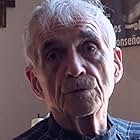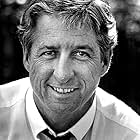The life and times of Howard Zinn: the historian, activist, and author of several classics including "A Peoples History of the United States". Archival footage, and commentary by friend, col... Read allThe life and times of Howard Zinn: the historian, activist, and author of several classics including "A Peoples History of the United States". Archival footage, and commentary by friend, colleagues and Zinn himself.The life and times of Howard Zinn: the historian, activist, and author of several classics including "A Peoples History of the United States". Archival footage, and commentary by friend, colleagues and Zinn himself.
- Awards
- 1 win total
- Narrator
- (voice)
- Self
- (archive footage)
- Self
- (archive footage)
- Self
- (archive footage)
- Self
- (archive footage)
- Self
- (as Staughton Lind)
- Self
- (archive footage)
- Self
- (archive footage)
Featured reviews
The biggest mistake of the protesters of the 60s was that they assumed all Americans were educated about their right to engage in civil disobedience and that the cared about human life in general. Protesters assumed that the troops coming home from Viet Nam understood the wrongness of the war and chose to support it rather than engage in disobedience and risk the penalties. The average American, desiring a wave less and secure existence, had no real concept of any of the inconsistencies the war. They were quite content to kill the farmer that they were told threatened their way of life.
How many ignorant people today feel that democracy means the American way of life? How many ignorant people today forget and to the REPUBLIC, for which it stands not the democracy.
How many ignorant people today can't make the connection between crack use and war? The bottom line if you don't have enough time to understand to another American's point of view, you don't have enough time to be an American. A country of the people, by the people, and for the people.
Unfortunately, the documentary takes a fairly standard hagiographical approach that you often see in documentaries about intellectuals, elevating the person above their ideas even when this seems to go directly against the "people's history" approach that Zinn so argued for. Moreover, it sticks to the same tired talking-heads/archival-clips-and-photos approach that you've seen in every documentary. Hell, you've probably even seen these specific talking heads and photos in many other movies.
Pick up a copy of A People's History of the US, or one of Zinn's other books, but you can skip this documentary. In the end understanding the man's ideas are more important than biographical worship of the man himself.
By telling history from the point of view of the oppressed, Zinn has transformed the way history is taught in American classrooms. In this cinematic exploration of his life, it becomes clear that he has lived his life in accordance with his principles.
The movie makes excellent use of interviews with important leaders -- Alice Walker, Marian Wright Edelman, Tom Hayden, Daniel Berrigan and others -- to tell about Zinn's influence as a leader against Jim Crow laws in Georgia, as a primary leader of the Peace Movement during the Vietnam War, as a union activist at Boston University, and as a leader in the anti-War movement during the Iraqi conflict.
If you're not familiar with Zinn's writings, you will be inspired to read about him after watching this movie.
Highly recommended.
For example, the story of when Dr. Zinn traveled to North Vietnam at the invitation of the NVA to bring 3 POWs home is a story of a peace-loving man traveling to a foreign land in order to bring home three countrymen. There is a blindness to the idea that, for the Soviets and NVA, the propaganda value of undermining US policy by 'negotiating' with a sympathetic leftist superseded any other consideration; this idea is not even given the consideration of a mention, nor are the potential consequences of Dr. Zinn's private diplomacy. Of course, Zinn marvels at the loveliness of the North Vietnamese culture, including having a grand time during a subterranean sing-a-long, and he, of course, makes the requisite denunciation of American bombing. He scoffs at the idea that Americans might have been abused by the NVA, having a good chuckle at the expense of an official who believed that American POWS were being abused; the documentary makes no mention of what's been learned since Zinn had his chuckle. Then, upon Dr. Zinn's return home, he is baffled by the US military and government's desire to examine, debrief, and return the 3 POWs, as opposed to Zinn being allowed to do so, and it is made plain that this is yet another example where a lying hostile US government thwarted the actions of a peace-loving man.
That is not to say Dr. Zinn didn't face other trials. He spoke out against the board of trustees of his university, and there's intense speculation that the tenure he received that day might have been put in jeopardy because of the dark forces at work on the board of trustees. He had to teach at a school with a university president who disagreed with him on politics. He has been arrested after a peace rally where he spoke turned into a riot. He also believes the FBI might have had agents among the crowd at some of his peace rallies. Yet, he has come through and triumphed despite these hardships.
And his triumph includes his belief that there is no need to obey the law. Law, Dr. Zinn tells us, is made by 'flawed, limited, petty' men who then treat it as a 'holy writ', rendering law and courts based on said law as arbitrary as the shifting sands. That there are peaceful methods, such as elections and courts, for changing laws is insufficient. Direct, passionate, and selected rioting will get the government's attention and change things for the better.
Noam Chomsky and Daniel Ellsberg also offer commentary.
Storyline
Did you know
- TriviaHypocrisy that exists between the wording of the U.S. Constitution and the actions of the U.S. Government in supporting slavery, segregation, the military industrial complex, and corporate interests is the central theme of Dr. Zinn's works, and his life's work in protestation of these perceived injustices.
- Quotes
Zinn, Howard: History is important. If you don't know history it is as if you were born yesterday. And if you were born yesterday, anybody up there in a position of power can tell you anything, and you have no way of checking up on it.
Details
- Release date
- Country of origin
- Languages
- Also known as
- Говард Зинн: Как сохранить нейтралитет в поезде
- Filming locations
- See more company credits at IMDbPro
Box office
- Gross US & Canada
- $122,011
- Gross worldwide
- $122,011
- Runtime1 hour 18 minutes
- Color
- Aspect ratio
- 1.78 : 1
Contribute to this page


















